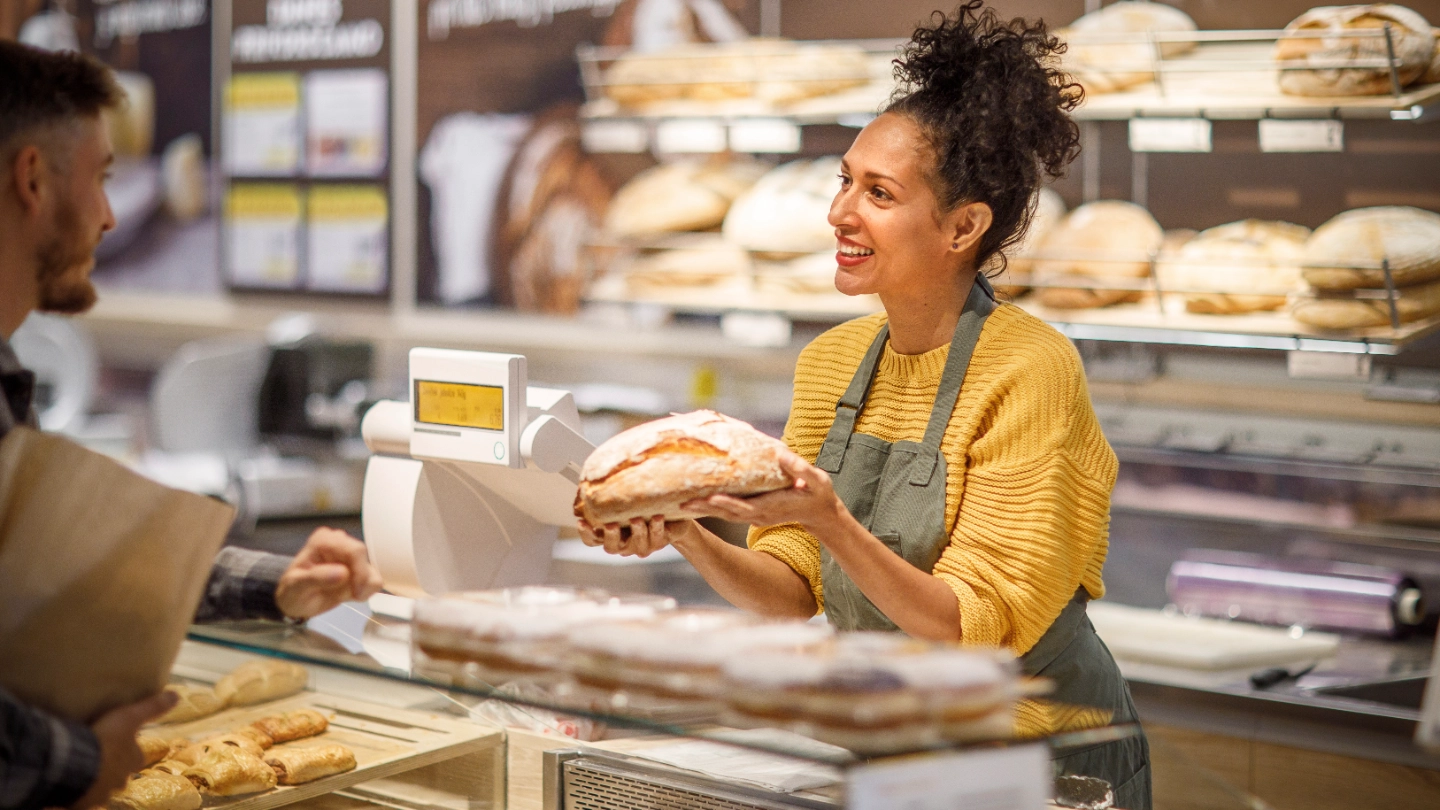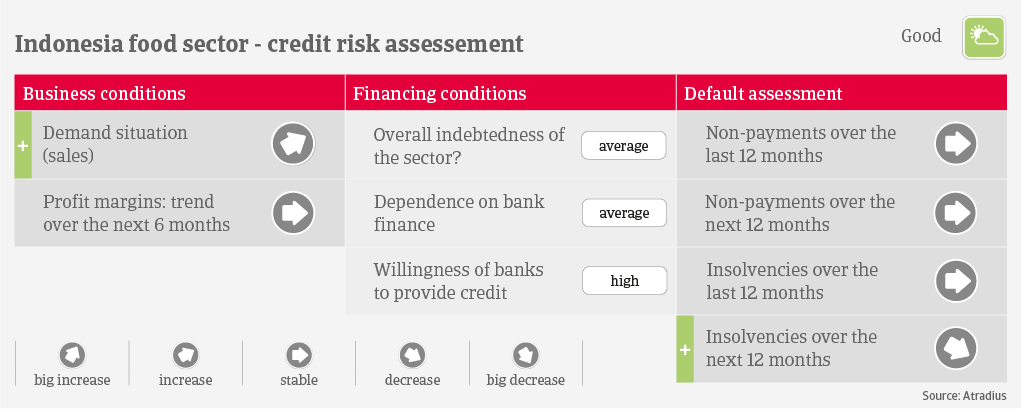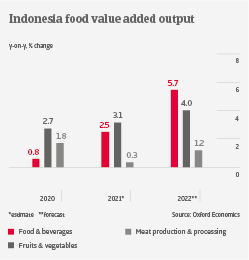
 The Indonesian food & beverages sector remained resilient in 2020 and 2021, and value added output increased 0.8% and 2.5% respectively. The beverages and dairy segments show robust growth rates. Prices for meat remain stable, as the government has increased import quotas. However, consumer demand for fruits and vegetables is impacted by rising sales prices. Online groceries and food delivery businesses gained momentum during the pandemic, while hospitality and food services benefited from the partial easing of restrictions in late 2021 as the vaccination rollout gained momentum.
The Indonesian food & beverages sector remained resilient in 2020 and 2021, and value added output increased 0.8% and 2.5% respectively. The beverages and dairy segments show robust growth rates. Prices for meat remain stable, as the government has increased import quotas. However, consumer demand for fruits and vegetables is impacted by rising sales prices. Online groceries and food delivery businesses gained momentum during the pandemic, while hospitality and food services benefited from the partial easing of restrictions in late 2021 as the vaccination rollout gained momentum.

We expect that profit margins of most businesses will remain stable this year. The impact of globally rising energy and commodity prices has been limited so far. The government sets energy prices, and most agricultural products needed for further processing are produced in Indonesia. Rising labour costs are not an issue, as labour is widely available and the government regulates wages. That said, price increases in some segments with higher import dependency (dairy, meat) could not be avoided.
Across the industry the gearing of businesses is manageable, and banks are generally willing to lend to food & beverages companies. Payments in the sector take about 30-60 days on average. Payment behaviour has been good over the past couple of years, and we expect this positive trend to continue. Due to the still robust performance during the pandemic and ongoing demand growth, we expect protracted defaults and insolvencies to level off in 2022, or even to decrease by about 5%-10%.
Our underwriting stance is mainly open for food processors and producers, in particular if businesses are part of a larger group. However, we are more cautious with highly leveraged companies. We maintain a neutral approach for food services and retail. In particular, food services and related hospitality still face the downside risk of another tightening of restrictions should coronavirus cases surge again.



































